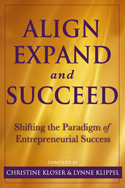Posts tagged children affected by divorce
How Children React to Divorce
6 If you’re a parent going through a divorce, you’re probably worried about how your children will be affected by the divorce. You may be watching for signs of problems like temper tantrums, withdrawing, poor grades, etc. You may be pretending everything is fine and trying not to mention the divorce much. Or you might be on edge and snapping at your kids a lot, blaming anything that goes wrong on the divorce.
If you’re a parent going through a divorce, you’re probably worried about how your children will be affected by the divorce. You may be watching for signs of problems like temper tantrums, withdrawing, poor grades, etc. You may be pretending everything is fine and trying not to mention the divorce much. Or you might be on edge and snapping at your kids a lot, blaming anything that goes wrong on the divorce.
If your kids are acting like everything is okay or even telling you that they’re fine, don’t believe it. I’m not saying that you’re kids are miserable or horribly damaged, but they ARE being affected by your divorce. Just as you are. It’s impossible not to be. The key is to minimize the impact by talking regularly, sharing feelings, encouraging openness and expressing love…a lot.
Your kids are going to be concerned about you and will often try to be especially good during this time because they don’t want to cause you any further upset. They are already worried that your split may have something to do with them so they want to make sure they don’t cause any more problems. It’s imperative that you make it very clear to your children that they in no way caused your marriage to end and that they cannot bring you back together either.
Younger children are more likely to think they are somehow at fault, while older children often get angry at their parents. Some kids cry a lot, others show no emotion. No matter how they act outwardly, they have a lot going on internally as they try to process what’s happening. They aren’t capable of fully understanding adult relationships (even when they’re teenagers), so it’s a very confusing and unsettling time for them.
Let them know they can talk to you about how they are feeling and that you understand their anger, sadness, fear, etc. Don’t try to convince them that everything is fine. Instead let them say what they’re thinking and simply let them know you care. Tell them how much you love them and that you will do all you can to help them get through the changes.
Don’t share too much information with them about why you are getting divorced. They aren’t old enough to understand and this information can be very painful for kids. Regardless of who did what, the children need to see their parents just as mom and dad. If one parent is a jerk, let the children discover and decide that for themselves as they get older. For children, anything negative about one of their parents makes them feel that they, too, are bad since they come from that parent. So if you bad-mouth your ex, you are bad-mouthing your child. Keep that in mind when you have the urge to say something not-so-nice in front of your kids (even if it’s true).
If your kids are in school or some kind of child care, talk with their teachers and care-givers regularly. Let them know what’s happening and ask them to let you know if they see changes in your child. They spend a lot of time with your children and will likely notice if anything is different, and your kids are more apt to act out when they’re away from you.
Divorce is so difficult on the two adults going through it, it’s often hard to muster the energy to take care of anyone else. I know. But your children need you now more than ever. Do your best to be present with your kids, to check in with them and let them know how much you care. Plan some activities that you can enjoy together, so you can all get a break from the heaviness of the “divorce stuff” and enjoy life. Laughter truly is great medicine. The more you’re able to still have fun and laugh, the more your children will feel like things really are going to be okay.
NOTE: For more in-depth information on how to talk to your kids about divorce and what to expect from them at various ages, check out my new How To Tell Your Friends and Family That You’re Getting Divorced Kit. This includes a bonus report on How To Tell Your Kids You’re Getting Divorced. Full details at http://HowToTalkAboutDivorce.com


